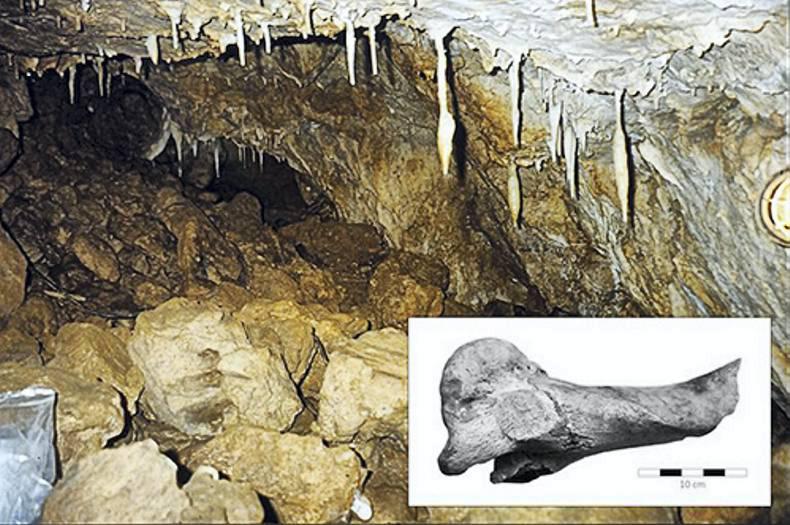A now-extinct species of giant wild cattle, known as aurochs, were crossbred with the ancestors of modern cattle in Britain and Ireland thousands of years ago, according to a new study. The study, led by Professor David MacHugh, Associate Dean for Research, Innovation and Impact at UCD’s School of Agriculture and Food Science, found strong evidence for genes from wild aurochs mixing in with early domestic cattle in Britain. The study says this must have happened before the aurochs were hunted to extinction in Britain more than 3,000 years ago.
The auroch is an extinct wild ox that inhabited Europe, Asia and North Africa. The species survived in Europe until the last recorded aurochs died some time in the early 1600s, reportedly in Poland.
Researchers made the finding after they successfully reconstructed the genome sequence from a representative of the northwestern European population of aurochs using a 6,750-year-old British auroch’s bone discovered in a cave in Derbyshire, England. The scientists used whole-genome sequencing data generated from this bone in their research.
Commenting on the study, Professor MacHugh said it “contradicts earlier simple models of cattle domestication and evolution that we and others proposed, based on studies of uniparental genetic systems, such as mitochondrial DNA and the Y chromosome.
‘‘What now emerges from high-resolution studies of the nuclear genome is a more nuanced picture of crossbreeding and gene flow between domestic cattle and wild aurochs, as early European farmers moved into new habitats, such as Britain during the Neolithic period.”
The study’s conclusion said the work provides important new information regarding the origins and functional evolution of modern cattle, revealing that the interface between early European domestic populations and wild aurochs was significantly more complex than previously thought.
An international team of scientists from UCD, IdentiGEN Ltd, Trinity College Dublin, the National University of Ireland, Galway, the University of Oxford, the University of Manchester, the United States Department of Agriculture (USDA), Recombinetics, Inc, and the Beijing Genome Institute contributed to the research which was published in the journal Genome Biology.





SHARING OPTIONS